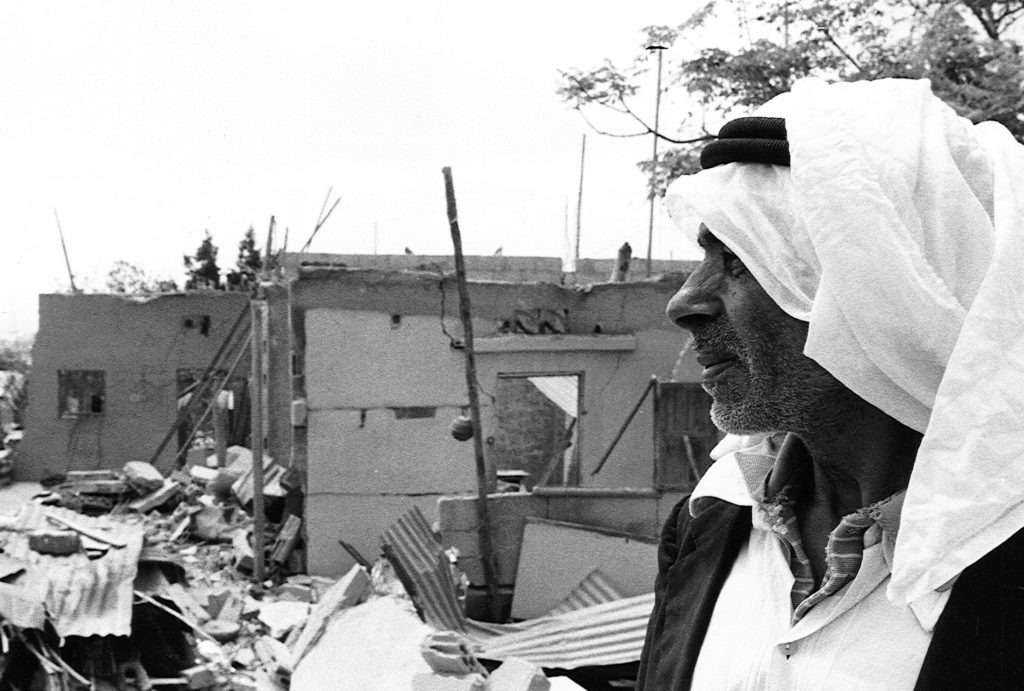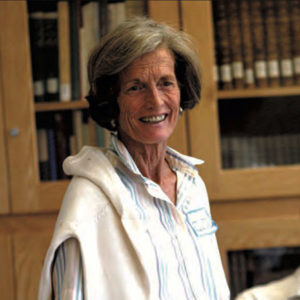The Plight of Palestinian Refugees Was Imprinted on My Mind
Posted in: peopleofanera
Seeing the world has been my lifelong passion. I started travelling when I was a college student. For some unknown reason, I thought about studying in India but my parents tried to steer me toward Europe. Our minister talked about Lebanon and my parents agreed to let me study at the American University of Beirut. So, off I went. I loved Lebanon from the start–the mix of cultures, the old Arab world and French customs. The first time I heard the call to prayer, I felt something special.
Lebanon changed my life forever. It was there that I met my future husband Malcolm Kerr. He had grown up in Lebanon where his parents were teachers at AUB. We married and pursued our teaching careers. Malcolm rose to become president of the AUB but he was gunned down by terrorists in 1984. That tragedy forced me to make my own way with a young family in tow. I taught English for several years at the American University in Cairo before moving home to California in 1989.
But I never lost my love for the Middle East or my passion to share the joys of the world around me. For 27 years, my work as Fulbright Coordinator at UCLA has given me the opportunity to do just that. Teaching a seminar with Fulbright scholars is a way to let UCLA students learn to see the world as others see us. I believe deeply in the power of education. Our family foundation, the Kerr Family Endowment, covers tuition and other costs for PhD students from the Middle East at UCLA’s Middle East Center.
I also never forgot the plight of refugees struggling to survive in the Middle East. My first exposure to the life of a refugee was during my student days at AUB. Two of my roommates were from Palestine and one came from Iraq. My Iraqi roommate sought political asylum in Sweden, fleeing the 2003 war in Iraq . She confided in me that she never really understood the plight of a refugee until she became one herself. I think her experience helped me to see what it means to be cut off from your home and family and faced with the challenge of building a new life on your own. The four of us have remained lifelong friends.


In 1982, Anera’s donors respond to a call for funds to help Lebanon in the wake of bombings and invasions from Israel. In three months, Anera supporters gave $100,000 for relief efforts and Anera shipped $300,000 worth of vital medicines.
I saw the suffering first-hand in Lebanon’s refugee camps during the early years we lived in Beirut. It was after the creation of the state of Israel and a time of pan-Arab nationalism. The plight of Palestinian refugees was imprinted on my mind.
It was through close friends from my Lebanon days that I heard about Anera and their wonderful work in the refugee camps. So, it made sense to me to support Anera’s efforts to help improve life in the camps and restore a sense of dignity to families living there.
My respect and appreciation for Anera has never waned. What I appreciate most is that Anera staff are not ‘drop-ins’ but rather experts – born, raised and educated where they live and now work. They understand what is needed and are dedicated to helping their communities in any way they can.
I admire so much Anera’s mission to help local groups and communities expand their resources to improve the prospects for families. I have very close friends whom I respect and love who raise funds and undertake projects for Anera and I want to be part of that support group to help in whatever way I can.
OUR BLOG
Related
In this log, Anera provides updates on unfolding war in Palestine and our response. Please stay tuned here for the latest information. To subscribe for weekly updates via SMS on our response in Gaza, text GAZA to 1-866-549-0055. Questions? See…
The first time I visited Gaza was on my birthday, back in March 2016. I hadn’t told anyone it was my birthday – I’m not big on celebrations – but in true Gaza fashion, the team found out and insisted…
No one should be left behind when it comes to water. This year for World Water Day Anera is highlighting the situation in Gaza and poetry from Indigenous activists.

